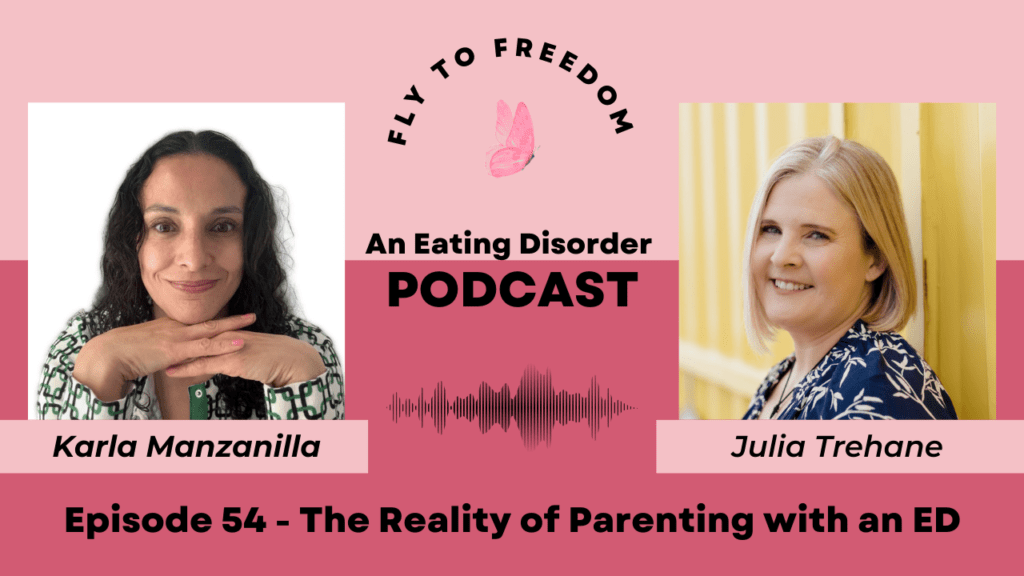Recovering from an eating disorder has been a journey filled with both challenges and triumphs, not just for me but for my family too. In a recent podcast episode, my friend Karla and I shared our experiences and how our struggles with eating disorders impacted our roles as parents and, consequently, our children. This reflection aims to delve deeper into this critical issue, offering insights into the science behind eating disorders and their effects on family dynamics while providing practical advice for recovery from my perspective.
Eating disorders are complex mental health conditions that can have profound physical and psychological effects. As someone who has lived through this, I know firsthand that the impact extends beyond the individual to touch the lives of those we hold dear, especially our children. When I struggled with an eating disorder, it inadvertently influenced my children’s attitudes towards food, body image, and self-esteem.
Research has shown that children are highly perceptive and often pick up on their parents’ attitudes and behaviours, including those related to food and body image. For example, a study published in the *Journal of Eating Disorders* highlights the potential for disordered eating behaviours and attitudes to be passed down from parent to child. This transmission can occur through modelling behaviours, explicit communication about food and body image, and the emotional climate of the home.
In my case, my struggles led to a heightened focus on “perfectly healthy” eating and an inability to relax and enjoy moments with my children. This pursuit of an unrealistic standard of parenting, driven by the distorted lens of the eating disorder, not only affected my well-being but also set an example my children might unintentionally follow. It was only during my recovery that the guilt set in with the realisation that my actions could have a lasting impact on my children
Recovery from an eating disorder opened up a new pathway for my parenting—one that embraces imperfection, vulnerability, and genuine connection. Moving away from strict food rules and the need for control allowed me to be more present with my children. This shift not only transformed my relationship with my children but also offered me a new perspective on what it means to be healthy and happy.
My dear friend Karla and I created this podcast all about parenting with an eating disorder. Click on the image to listen to the episode
Here are some science-based insights on how my recovery from an eating disorder positively impacted my parenting and family dynamics:
Improved Communication:
Recovery encouraged me to communicate openly and honestly about my challenges and vulnerabilities, setting a strong foundation for my relationships.
Healthy Modelling:
As I worked on my recovery, I modelled healthy eating behaviours and a balanced approach to food and exercise, creating a positive environment for my children.
Emotional Availability:
Without the constant preoccupation with food and body image, I became more emotionally available to my children, able to support and engage with them on a deeper level.
Breaking the Cycle:
By addressing my own issues, I am preventing the cycle of disordered eating from continuing to the next generation.
Collective Healing:
My recovery has been a journey that involves the whole family, promoting healing and understanding among all members.
Actions to help maintain family balance
1. Seek Professional Help: If you’re a parent struggling with an eating disorder, the first step toward recovery is seeking professional help. Therapists, Coaches, dieticians, and support groups can provide the guidance and support needed.
2. Open Communication: Start conversations with your children about food, body image, and health in a positive, open, and age-appropriate way. This encourages a healthy family dynamic around these topics.
3. Model Healthy Behaviours: Work on modelling balanced eating and exercise behaviours. Remember, children learn a lot by watching their parents.
4. Prioritise Self-Care: Take time for self-care and relaxation. Showing your children that you value yourself and your well-being sets a positive example for them to do the same.
5. Create a Supportive Environment: Encourage your family to support each other in challenges, including recovery from an eating disorder. Creating a home environment where vulnerabilities can be shared openly strengthens the family bond and supports healing.
Recovery from an eating disorder is indeed a journey worth taking, not only for your own sake but for your family’s as well. As Karla and I have shown, it’s possible to transform your relationship with food and with your children through recovery, creating a more connected and happy family life.
If you like this content, you can get more like this straight to your inbox every week by signing up to my Fly To Freedom Newsletter. No spam, no ads, just great advice and support.
If you’d like me to help you through your recovery, with proper, effective, science backed techniques and everything you need to create a better life, free from your eating disorder, reach out to me and take that 1st step. Oh, and this part is free of charge by the way!


